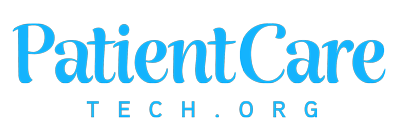
Professional Development Opportunities for Patient Care Technicians
In the dynamic field of healthcare, ongoing learning and professional development are essential for patient care technicians (PCTs) to stay abreast of the latest advancements, refine their skills, and advance their careers. From specialized certifications to continuing education programs, a wealth of opportunities exists for PCTs to expand their knowledge, enhance their expertise, and make a meaningful impact in their roles. In this blog, we explore the various avenues available for PCTs to pursue continuing education and professional development.
Before delving into specific opportunities, it’s crucial to underscore the importance of lifelong learning for patient care technicians. As frontline caregivers, PCTs play a critical role in ensuring the well-being and comfort of patients. By staying updated on best practices, emerging technologies, and evolving healthcare trends, PCTs can deliver higher quality care and contribute to better patient outcomes.
One avenue for professional development available to patient care technicians is pursuing specialized certifications in areas relevant to their practice. Certifications such as Certified Nursing Assistant (CNA), Certified Patient Care Technician (CPCT), and Basic Life Support (BLS) not only validate PCTs’ skills and knowledge but also open doors to new career opportunities and higher earning potential.
Continuing education programs offer PCTs the opportunity to deepen their understanding of specific topics or acquire new skills relevant to their roles. Whether through online courses, workshops, seminars, or conferences, continuing education allows PCTs to stay current with industry standards, regulatory requirements, and evidence-based practices. Topics may range from infection control and patient safety to communication skills and cultural competence.
Many healthcare facilities offer employer-sponsored training programs and professional development opportunities for their staff, including patient care technicians. These programs may include in-house workshops, hands-on training sessions, or tuition assistance for pursuing further education or certifications. By taking advantage of these offerings, PCTs can enhance their skills while demonstrating their commitment to professional growth and excellence in patient care.
Joining professional organizations specific to the field of patient care can provide PCTs with access to a wealth of resources, networking opportunities, and career development support. Organizations such as the National Association of Health Care Assistants (NAHCA), the National Association of Health Unit Coordinators (NAHUC), and the National Association of Patient Care Technicians (NAPCT) offer membership benefits such as educational resources, conferences, and networking events tailored to PCTs’ needs.
Mentorship programs and peer learning initiatives can also contribute to the professional development of patient care technicians. By connecting with experienced mentors or collaborating with peers in informal learning communities, PCTs can gain valuable insights, exchange ideas, and receive guidance from those with firsthand experience in the field. Peer support and mentorship can foster a culture of continuous improvement and collaboration within healthcare teams.
As patient care technicians, investing in continuing education and professional development is not only beneficial for personal growth but also essential for delivering high-quality care to patients. Whether through specialized certifications, continuing education programs, employer-sponsored training, professional memberships, or mentorship opportunities, there are numerous pathways available for PCTs to advance their careers and make a positive impact in healthcare.
By embracing lifelong learning and seizing opportunities for growth, patient care technicians can elevate their practice, expand their horizons, and contribute to the ongoing evolution of healthcare delivery. As the healthcare landscape continues to evolve, PCTs who prioritize professional development will be well-positioned to thrive in their roles and drive positive change in patient care.


